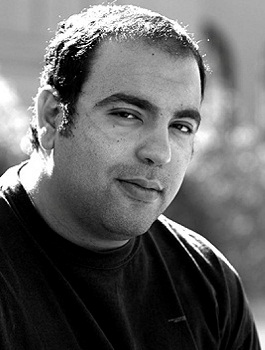By Jan-Werner Mueller
PRINCETON: The protest movements that have flared up across the West, from Chile to Germany, have remained curiously undefined and under-analyzed. Some speak of them as the greatest global mobilization since 1968 — when enragés in very different countries coalesced around similar concerns. But others insist that there is nothing new here.
The Bulgarian political scientist Ivan Krastev, for example, has claimed that what we are actually experiencing is 1968 “in reverse.” “Then students on the streets of Europe,” he says, “declared their desire to live in a world different from the world of their parents. Now students are on the streets to declare their desire to live in the world of their parents.”
No name and no clear interpretation have yet attached itself to the movements. But how they describe themselves — and how analysts describe them — will make an important difference in the direction they might take. Such self-understandings should also influence how citizens generally should respond to these movements.
Nineteen sixty-eight was famously over-theorized. Student leaders, or so most people remember, were constantly producing convoluted manifestos that combined Marxism, psychoanalysis, and theories about Third World liberation struggles. What is easily forgotten is that even the most theory-eager leaders of the time understood that ultimately, the protest movements that helped to define 1968 didn’t come out of seminar-room discussions.
The German leader Rudi Dutschke, for example, insisted that the movement was driven by “existential disgust” — and anger, provoked by the Vietnam War in particular. Many putative “theorists” themselves declared that the enragés should let go of revolutionary textbooks and, instead, “practically problematize” inherited radical strategies. Put more simply: they were supposed to make it up as they went along.
In that sense, 1968 and today’s protests are not as different as some observers claim. There is no political playbook, but there are events and also books that inspired outrage: Frantz Fanon’s Wretched of the Earth in the 1960’s and, nowadays, the unlikely bestseller Indignez-Vous!, by the 93-year old former French Resistance fighter Stéphane Hessel.
As critics have mockingly pointed out, Hessel’s booklet at times reads more like a call for a free-floating, almost arbitrary desire to be agitated by something — almost anything, really, as long as it can somehow be justified by one’s own subjective sense of justice. It did not help that Hessel nostalgically invoked Jean-Paul Sartre and existentialism, and the “great stream of history” — longings reflected on a hand-painted sign at Occupy Wall Street: “Get excited and do something.” Tellingly, that sign was flanked by posters for the left-wing anarchist philosopher Noam Chomsky and the right-wing libertarian politician Ron Paul.
Still, for all the theoretical weaknesses of Hessel’s treatise, “indignation” has become a watchword for movements in France, Spain, and elsewhere. And language matters here: indignation suggests that some social actors – a government or elites in general – have violated shared norms or moral understandings. This is the literally “reactionary” interpretation of these movements: they are animated by a sense that the social contract has been broken, and that elites ought to return to the status quo that preceded the policies which ultimately led to the financial crisis. If so, the people on the squares of Madrid, Athens, and New York are not so much demonstrating against those in power — give or take a few anarchists — as demonstrating to those in power that they should feel ashamed for having reneged on supposedly shared commitments.
Indignation is different from outrage — a sentiment that is ultimately blind and not necessarily connected to any presumption that one shares commitments with the people against whom it is directed. This is to some degree also the story of 1968: righteous disgust led to outrage, but, when channeled through completely unrealistic revolutionary theorizing, also to self-righteousness and, ultimately, to elaborate justifications for physical violence on the part of radical factions.
In such a scenario, self-empowered minorities come to speak in the name of imaginary majorities — a populism of sorts, and, like all populism, driven by emotions more than by norms, let alone reasons. Or it simply all ends in riots.
The distinction between indignation and outrage might seem like nitpicking. But the lessons that elites learn – and they clearly will want to turn the protests to their electoral advantage – will partly depend on how these movements are described, and how they conceive of themselves. On that point, the demonstrators have so far remained curiously mute: they have yet to articulate any wider demands or a sense of what a different society, or “real democracy” — a stock phrase of the Spanish movement — should be all about.
If today’s protest movements are based on righteous indignation, the lack of concrete demands should not be a problem: shared norms (and the policies that would follow from them) can still broadly be assumed. But if they are being driven by rage, then a lack of clear goals might merely produce more anger and frustration, which in turn could eventually lead to physical violence and some kind of political nihilism.
This also means that political elites should try to understand and work with the message of indignation — and not cynically play up anger for electoral advantage. It is not just ridiculous, but downright irresponsible, for example, that the British Labour Party intellectual Maurice Glasman now feels compelled to reveal the so-far hidden “angry insurgent side” of party leader Ed Miliband.
Elites — and protesters’ fellow citizens — should respond conscientiously and creatively to moral indignation, comprehending that it is ultimately about an affirmation of liberal democracy, and not about all-out revolution, let alone nihilism. And they should seek to calm anger and defuse outrage, which can be a serious threat to liberal democracy.
Jan-Werner Mueller teaches at Princeton. His latest book is Contesting Democracy: Political Ideas in Twentieth-Century Europe. This commentary is published by DAILY NEWS EGYPT in collaboration with Project Syndicate/Institute for Human Sciences (www.project-syndicate.org).



